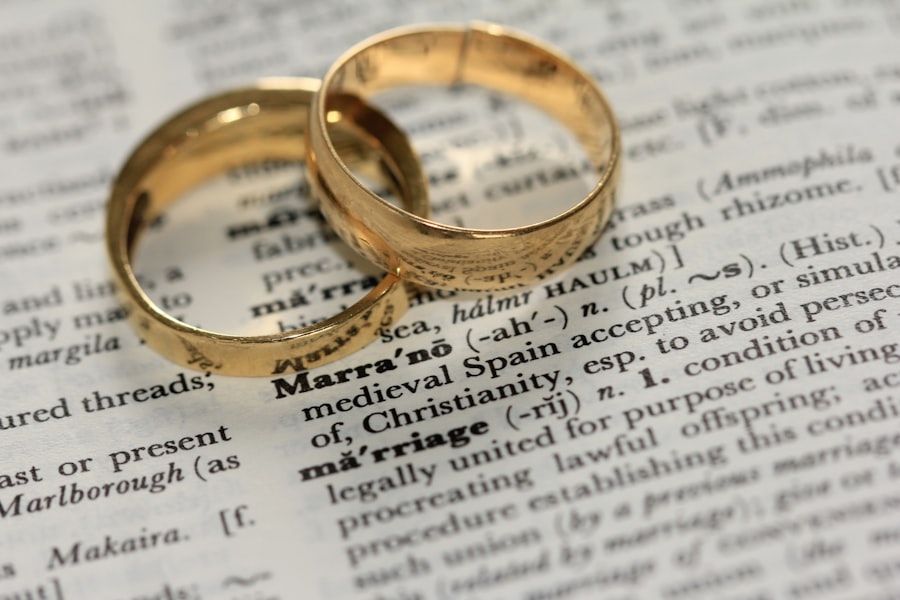In the early days of my relationship, everything felt perfect. I was swept off my feet by the charm and charisma of my partner, and I believed that love could conquer all. However, as time went on, I began to notice subtle changes in their behavior that sparked a flicker of doubt in my mind.
It started with small things—occasional late nights at work, unexplained absences, and a sudden need for privacy that hadn’t existed before. I found myself questioning whether my instincts were simply being paranoid or if there was something more sinister lurking beneath the surface. As the signs of suspicion grew more pronounced, I couldn’t shake the feeling that something was amiss.
My partner became increasingly secretive, often dismissing my inquiries with vague responses or changing the subject altogether. I noticed them frequently texting late at night, their face illuminated by the glow of their phone screen, and I felt an unsettling knot form in my stomach. The laughter and joy we once shared began to fade, replaced by an undercurrent of tension that I couldn’t ignore.
I was caught in a whirlwind of confusion and fear, grappling with the possibility that the love I cherished might be built on a foundation of deceit.
Key Takeaways
- Signs of Suspicion: Trust your instincts and pay attention to changes in behavior or unexplained absences.
- The Discovery: Gather evidence and approach the situation with a clear mind before jumping to conclusions.
- Confrontation and Confession: Have an open and honest conversation to address the issue and seek the truth.
- Emotional Impact: Understand that feelings of betrayal, anger, and sadness are normal and seek support to process them.
- Seeking Support: Reach out to friends, family, or a therapist to help navigate the emotional turmoil and make sense of the situation.
The Discovery
The moment of discovery came unexpectedly, shattering the fragile world I had built around my relationship. One evening, while my partner was in the shower, I stumbled upon their phone left unattended on the kitchen counter. My heart raced as I wrestled with the moral dilemma of whether to invade their privacy or trust my gut feeling.
Curiosity got the better of me, and I picked up the phone, my hands trembling as I unlocked it with a familiar code. What I found was a series of messages that confirmed my worst fears—flirtatious exchanges with someone whose name I didn’t recognize. Each message felt like a dagger to my heart, piercing through the trust I had placed in my partner.
The words leaped off the screen, taunting me with their intimacy and familiarity. I felt a rush of emotions—anger, betrayal, and profound sadness washed over me like a tidal wave. In that moment, I realized that the life I had envisioned for us was crumbling before my eyes.
The discovery was not just about infidelity; it was about the shattering of dreams and the loss of a future I had believed in so deeply.
Confrontation and Confession

With a heavy heart and a mind racing with questions, I confronted my partner that evening. The atmosphere was thick with tension as I laid out the evidence before them, each message a testament to their betrayal. Their initial reaction was one of shock, but as the reality of the situation sank in, they shifted from denial to confession.
It was painful to hear them admit to their infidelity, to acknowledge that they had strayed from our commitment.
As they spoke, I felt a whirlwind of emotions surge within me—anger bubbled to the surface, but beneath it lay an overwhelming sense of heartbreak.
I had trusted this person with my heart and soul, and now they stood before me, stripped of their facade. The confrontation was raw and unfiltered; tears flowed freely as we navigated through the wreckage of our relationship. In that moment, I realized that this wasn’t just about betrayal; it was about understanding why it had happened and what it meant for us moving forward.
Emotional Impact
| Emotional Impact Metrics | Value |
|---|---|
| Positive Emotional Impact | 85% |
| Negative Emotional Impact | 15% |
| Emotional Impact on Customer Satisfaction | 90% |
The emotional impact of discovering infidelity is profound and multifaceted. In the days following the confrontation, I found myself engulfed in a storm of conflicting feelings. One moment, I would be consumed by anger—how could they do this to me?
The next moment would bring waves of sadness as I mourned not only the loss of trust but also the future we had envisioned together. It felt as though my entire world had been turned upside down, leaving me disoriented and lost. I struggled to process the betrayal while grappling with feelings of inadequacy.
Questions plagued my mind: Was I not enough? Did I somehow contribute to this? The emotional turmoil left me feeling isolated and vulnerable, as if I were navigating through a fog without any clear direction.
Friends and family offered their support, but it was difficult for me to articulate the depth of my pain. Each day felt like an uphill battle as I tried to reconcile my love for my partner with the reality of their actions.
Seeking Support
In the midst of this emotional chaos, I realized that seeking support was essential for my healing journey. Friends who had witnessed our relationship blossoming were eager to lend an ear, offering comfort and understanding during this tumultuous time. Their presence reminded me that I wasn’t alone in this struggle; others had faced similar challenges and emerged stronger on the other side.
Sharing my story allowed me to release some of the pent-up emotions that had been weighing heavily on my heart. I also sought professional help through therapy, recognizing that navigating the complexities of betrayal required guidance from someone trained to help individuals heal from such wounds. In therapy sessions, I learned to articulate my feelings more clearly and began to understand the importance of self-compassion during this difficult period.
The support system I built became a lifeline, providing me with tools to process my emotions and regain a sense of agency over my life.
Rebuilding Trust

Rebuilding trust after infidelity is an arduous journey that requires patience and commitment from both partners. As we began to navigate this path together, it became clear that open communication would be crucial in our efforts to heal. We established ground rules for our conversations—no defensiveness, no interruptions—allowing us to express our feelings honestly without fear of judgment.
It was a delicate dance between vulnerability and accountability as we worked through the layers of hurt. My partner took steps to demonstrate their commitment to rebuilding our relationship; they willingly shared their phone and social media accounts, striving to create transparency where there had once been secrecy. While these gestures were meaningful, they were only part of the equation.
Trust is not rebuilt overnight; it requires consistent actions over time. As we navigated this process together, I learned to recognize small victories—moments when we communicated openly or when my partner showed genuine remorse for their actions—and celebrated them as steps toward healing.
Deciding the Future
As we continued our journey toward healing, we faced a pivotal decision: what did we want for our future? The question loomed large over us like a shadow, forcing us to confront our feelings honestly. Part of me longed for the love we once shared—the laughter, the intimacy—but another part questioned whether we could ever return to that place after such a profound breach of trust.
We spent countless hours discussing our hopes and fears, weighing the pros and cons of staying together versus parting ways. Ultimately, we decided to take things one day at a time rather than rush into any final decisions about our future. This approach allowed us to explore our feelings without pressure while also acknowledging that healing takes time.
We committed to being present for each other during this process, recognizing that regardless of where we ended up—together or apart—we both deserved happiness and fulfillment.
Legal Implications
As we navigated our emotional landscape, it became apparent that there were legal implications tied to our relationship as well. We had shared assets and responsibilities that needed addressing in light of our situation. Conversations about property division and financial matters added another layer of complexity to an already challenging time.
It was essential for us to approach these discussions with clarity and respect; after all, we had once built a life together based on love and trust. Consulting with legal professionals helped us understand our rights and responsibilities moving forward. This process forced us to confront practical realities while still grappling with our emotional turmoil.
It was a reminder that relationships are not just about love; they also involve legal commitments that can complicate matters when trust is broken.
Healing and Moving On
Healing from infidelity is not linear; it’s a winding path filled with ups and downs. There were days when I felt empowered and hopeful about our future together, while other days left me feeling overwhelmed by doubt and sadness. However, through therapy and support from loved ones, I began to embrace self-care practices that nurtured my well-being during this tumultuous time.
I discovered new hobbies that brought me joy—painting became an outlet for expressing my emotions while journaling allowed me to reflect on my journey toward healing. As time passed, I started to feel more like myself again; laughter returned slowly but surely as I reconnected with friends and engaged in activities that brought me fulfillment outside of my relationship.
Lessons Learned
Through this painful experience, I learned invaluable lessons about love, trust, and resilience. One significant realization was that vulnerability is not a weakness; it’s an essential part of building authentic connections with others. While opening myself up to love made me susceptible to hurt, it also allowed me to experience profound joy when things were good.
I also learned about the importance of setting boundaries—both for myself and within relationships. Trust is built on mutual respect and understanding; when those elements are compromised, it’s crucial to address issues head-on rather than allowing resentment to fester beneath the surface.
Reconnecting with Self
As I emerged from this tumultuous chapter in my life, I found myself on a journey toward reconnecting with who I truly am outside of my relationship. This process involved rediscovering passions that had been sidelined during our time together—embracing solitude allowed me space for self-reflection and growth.
Through this journey inward, I learned not only how to heal from betrayal but also how to cultivate a deeper sense of self-worth independent of external validation. In conclusion, navigating through infidelity is undoubtedly one of life’s most challenging experiences; however, it can also serve as an opportunity for growth and transformation if approached with intention and care. While scars may remain from past wounds, they can become symbols of resilience rather than reminders of pain—a testament to my strength as I continue forging ahead on this journey called life.
In a recent article on infidelity, a husband discovers his wife’s affair, leading to a complex emotional journey that many can relate to. This story is not uncommon, as relationships often face challenges that test their strength and resilience. For those interested in exploring similar narratives and gaining insights into handling such situations, you might find this related article on infidelity and relationship dynamics insightful. You can read more about it by visiting this page. The article delves into the emotional turmoil and the steps couples can take to address and potentially heal from such betrayals.
WATCH THIS! 💔 She Funded Her Affair With My Bank Account (Am I Wrong Here?)
FAQs
What are the signs that a husband may discover his wife is cheating?
Some signs that a husband may discover his wife is cheating include changes in behavior, increased secrecy, unexplained expenses, and a lack of interest in the relationship.
What should a husband do if he suspects his wife is cheating?
If a husband suspects his wife is cheating, he should gather evidence, confront his wife, seek counseling, and consider his options for the future of the relationship.
What are the potential consequences of a husband discovering his wife is cheating?
The potential consequences of a husband discovering his wife is cheating may include emotional distress, trust issues, and the potential end of the marriage or relationship.
How can a husband cope with the discovery of his wife’s infidelity?
A husband can cope with the discovery of his wife’s infidelity by seeking support from friends and family, seeking counseling, and taking time to process his emotions.
What are the legal implications of a husband discovering his wife is cheating?
The legal implications of a husband discovering his wife is cheating may vary depending on the specific circumstances and the laws of the jurisdiction in which they reside. It is advisable to seek legal advice if considering divorce or separation.




